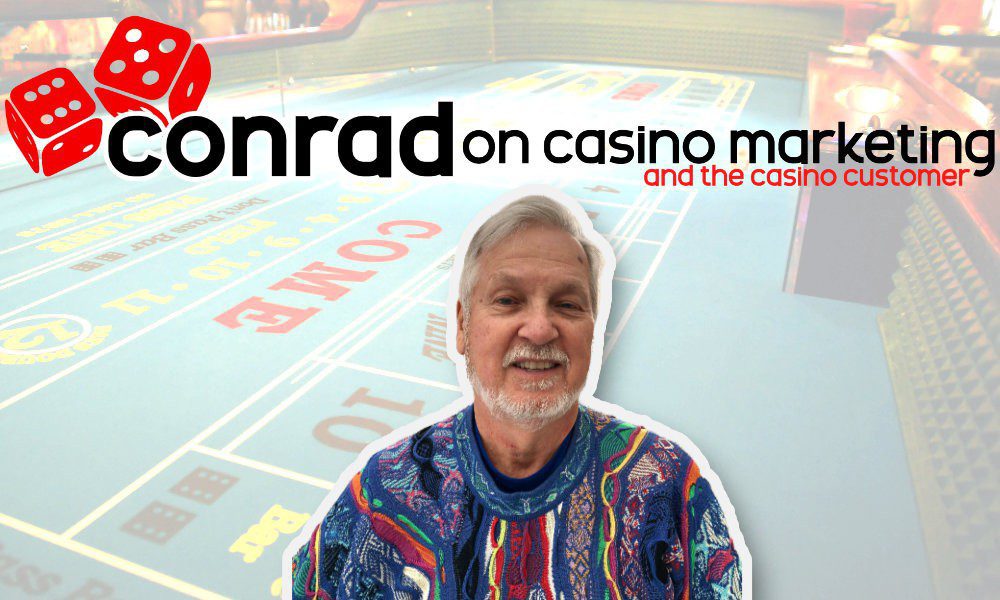We all know that prices have gone up almost everywhere. My accountant charged me 20% more to do my taxes in each of the last two years. I eat less eggs. And have you followed the price hikes on used cars, much less new ones? Yeah, inflation is a beast.
What I’ve found interesting during this inflation surge is what some companies have done to make it seem like they’re not raising prices. A cookie company doesn’t raise its prices, but gives you fewer cookies. A hotel may hold the line on prices, but doesn’t clean your room and gives you fewer and smaller amenities, along with the now-ubiquitous resort fee. An airline mostly holds fares, but nails you on baggage, early-boarding, and cancellation fees. While it all can seem a little sneaky, I guess it offers some alternatives to just throwing big price hikes in your face.
And then there’s the gambling industry.
For decades, gaming companies have had numerous ways to separate a gambler from his or her money, while making it seem prices have been relatively stable and the whole casino experience is still a tremendous value. A big part of that has been leveraging the big profit margins in the casino to create huge value everywhere else in the operation. Hey, a $200 free room (if you spend $2,000 in the casino)!
But that has changed dramatically over the last decade or so. The Great Casino Value Proposition has been diluted almost into oblivion and the game has become one of maximizing profits at every conceivable cash register, even ones that didn’t used to exist, like the entrances to parking garages. Yes, the casinos have exhibited serious chutzpah to lean so hard into this extreme value-reducing formula, but they’ve been aided and abetted by the ignorance and/or indifference of their customers.
Let’s look at the unique categories of strategies and tactics that casinos have used to decrease costs and increase revenues, while also greatly eroding the once-famous casino-value proposition. And strangely, since COVID, casino customers have been mostly accepting them, which is why, I guess, casinos keep pushing the envelope on how much they can get away with.
Things that used to be free
Free casino parking? It’s still around, but it’s going away quickly, especially in Las Vegas. Free internet service and other bundled room amenities? They’re almost completely gone, covered in that great revenue-enhancing innovation now common as a resort fee. Free early check-in? Nah, you pay for that now. Ten bucks in free play for new players club signups? That “welcome to new gamblers” gesture is hard to find anymore. As are free late checkouts, free menu substitutions or add-ons, free drinks in many casinos, free bottled water at the bar, and free room upgrades when available. “Free” used to be a casino’s magic bullet and competitive advantage. Now it’s seen as an albatross that needs to disappear.
Things presented as vendor costs (but are actually casino grabs)
The ATM fee is now as high as $9.99. That certainly doesn’t all go to the vendor. The same goes for fees for independent massage therapists in the spa, charges for outside dry-cleaning services, costs for having outside florists make an onsite delivery, fees for ticketing services for casino concerts, fees for credit-card cash advances, charges added on by food franchisees at the casino, and on and on and on. Casinos have a hand in all of this and when prices go up, they’re not necessarily seen as the culprit.
Loyalty benefits reduced or earned at a slower rate
Casino players clubs are huge operational and financial monstrosities. The points or comps earned by players have a huge cost and must be carried on the books. Casinos can save a ton of money by retiring point liabilities sooner; having players play more (adding revenue) to receive the same benefits; reducing direct mail, free play, food, and room offers; and many other financially impactful tweaks, slashes, cutbacks, and restrictions that make the casino more money. And in the post-COVID world, casinos can assume that they won’t lose customers in the process and even if they do, others are waiting in line to take their place.

Higher mandatory minimums
At penny slot machines in a casino, you used to be able to bet a penny. Now, it’s more commonly 50 cents and you can often bet $5 or more. It’s hard to find a blackjack game with less than a $10 or $25 minimum bet. Groups and conventions using a casino hotel routinely have minimum-spend requirements for rooms and F&B. All are ways to earn more revenue without being seen as necessarily charging higher prices.
Costs that are buried in the math of the games
Almost all roulette games now have two zeros, which take players’ money twice as fast as the European single-zero roulette; those that aren’t double zero are now TRIPLE zero. Crap games can make a lot more money by seemingly slight adjustments on the field and proposition bets. The same goes for the rules in blackjack, where paying 6-to-5 for a player blackjack (instead of 3-to-2) is now criminally common. To the average player, these games might all look alike, but they can be mathematically and financially very different and the casino can easily avoid being seen as the culprit.
Slot hold percentages tightened
Similar to casinos burying increased costs in the math of the games is the nefarious practice of burying increased player costs in the tightening of slot hold percentages on the software of the slot game itself. Depending on the extent of the tightening, this practice has huge implications for increasing slot revenue. A cadre of mainly gaming academics has posited that slot players can’t tell the difference in slot hold percentages, suggesting NOT tightening slots is costing the casino operator money, so why wouldn’t you do it if the players don’t know and can’t tell?
I’ve addressed this slot-tightening issue before. I’ve made the point over and over that slot players want more time on device, not less. That the players (especially the regulars) are watching their slot gambling budget not go as far. That casinos are risking killing the golden goose by squeezing their most profitable gamblers. I’m not sure many casinos are listening. I think they may have been seduced by a seemingly easy way to make more money from slot players without them knowing or caring.
But I think what these shortsighted casinos (and academics) are missing is that gamblers have always had a trust issue with casinos. They believe that casinos are always looking at ways to nickel and dime them, to take their money faster (and in more ways), and to have them win less often. And I can’t say I blame them.
I’m not sure what will change all this and make casinos have a more transparent appreciation of their customers and less opaque depreciation of their bankrolls in the pursuit of higher profits. It might start with some regulations requiring casinos to list the hold percentage on each one of their slot machines. I’ll bet that would begin to make transactions between casinos and their customers more open and honest.
Earlier posts by Dennis
How to stop gambling from being banned
What about these Electronic Crap Games?
Service you can trust. Really.
Top 10 things casino players hate
David Kranes: The most unappreciated man in gaming
My Top 10 big-picture casino-industry trends

